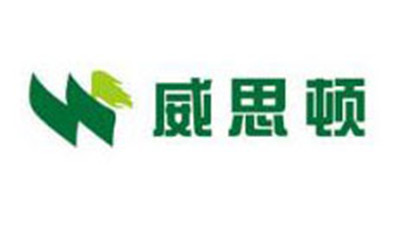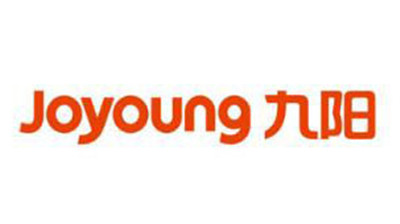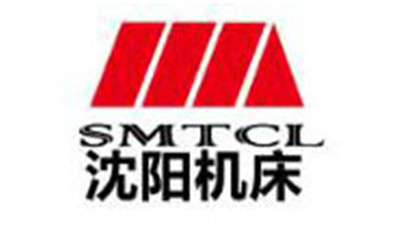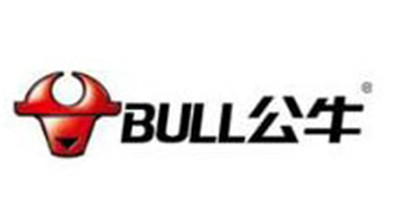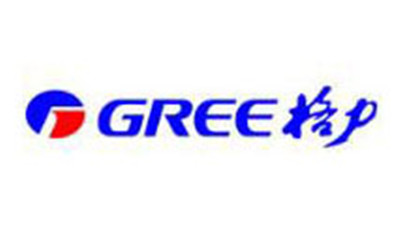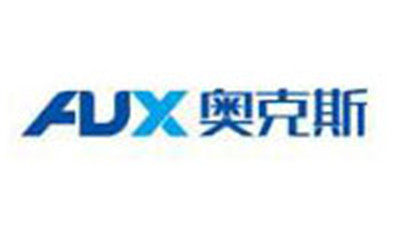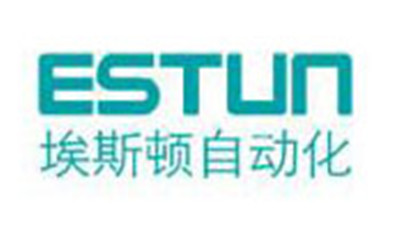30 Reasons Why the Best 30 Kva Transformer is Essential for Your Global Procurement Strategy
Table of Contents
- The Role of 30 KVA Transformers in Reducing Operational Costs in Global Procurement
- Key Industry Trends Driving the Demand for Efficient Transformers
- Examining the Energy Efficiency Ratings of Top 30 KVA Transformers
- The Impact of Transformer Reliability on Supply Chain Resilience
- How Integrated Power Solutions Lower Risks in Global Procurement Strategies
- Evaluating the Lifecycle Cost Benefits of Selecting Quality Transformers
- FAQS
- Related Posts
In today's super-connected global market, it's more important than ever to include high-quality components in your procurement plans. Take the 30 Kva Transformer, for example — it’s a pretty crucial piece when it comes to keeping things running smoothly and reliably, whether you’re working in industry or with renewable energy projects. Industry insiders are saying that demand for transformers is expected to skyrocket soon, mainly because power generation and distribution are expanding so rapidly.

Now, companies like Dezhou Xinping Electronics Co., Ltd., a high-tech business founded back in March 2001, have really stepped up by specializing in making precision electronic transformers that meet international standards. As China’s manufacturing scene moves toward better quality, choosing top-notch products like the 30 Kva Transformer can seriously boost how well your operations run and help you stay competitive on the global stage. In this post, I’ll share 30 solid reasons why bringing the best 30 Kva Transformer into your procurement mix is key to getting your operations to the next level—and really excelling.
The Role of 30 KVA Transformers in Reducing Operational Costs in Global Procurement
 As the world of global procurement keeps changing, 30 KVA transformers are really coming into their own as key players in cutting down operational costs. Did you know that in the U.S., the average age of large transformers is around 40 years? That’s pretty old in terms of equipment lifespan, and many of these units are pretty much at the end of their road. Swapping them out for newer, more efficient 30 KVA transformers can do wonders—think better energy performance and more reliable operation. Plus, investing in these modern transformers helps companies dodge some of the chaos caused by the current supply chain mess, which has led to crazy-long lead times and costs shooting up. It’s really a smart move to stay ahead of these challenges.
As the world of global procurement keeps changing, 30 KVA transformers are really coming into their own as key players in cutting down operational costs. Did you know that in the U.S., the average age of large transformers is around 40 years? That’s pretty old in terms of equipment lifespan, and many of these units are pretty much at the end of their road. Swapping them out for newer, more efficient 30 KVA transformers can do wonders—think better energy performance and more reliable operation. Plus, investing in these modern transformers helps companies dodge some of the chaos caused by the current supply chain mess, which has led to crazy-long lead times and costs shooting up. It’s really a smart move to stay ahead of these challenges.
Switching to 30 KVA transformers can also mean some nice savings on energy bills—something that’s always welcome in any cost-cutting plan. A report even suggests that newer transformers can boost efficiency by up to 15%, so you’re not only saving money, but also getting better performance and fewer headaches down the line. And with the ongoing transformer supply crunch threatening the backbone of our power grid, making smart procurement choices—like going for solid 30 KVA units—can keep things running smoothly.
Here are a couple of tips: First off, take a good look at your current transformer assets. Maybe consider a phased upgrade to 30 KVA units—that way, it won’t hit your wallet all at once. Also, stay in the loop with industry trends and keep an eye on supply chain issues so you can adapt your procurement plans early and avoid surprises. And don’t forget to work with trusted suppliers who understand your specific needs—they can offer valuable insights and support for long-term energy efficiency and reliability. Trust me, it’s all about making smarter choices today for a smoother operation tomorrow.
Key Industry Trends Driving the Demand for Efficient Transformers
You know, there's quite a buzz around the need for more efficient transformers these days, especially the 30 Kva ones. It’s really driven by some big industry shifts happening right now. For starters, the world’s leaning more and more towards renewable energy—solar, wind, you name it. Companies and governments alike are pushing for greener practices, which means we’re looking for transformers that can easily mesh with these new power sources. Not only do they help make energy use more efficient, but they also give us better peace of mind, making sure the energy supply keeps up as demand keeps climbing.
Then there’s the tech frontier, which is moving faster than ever. With all the smart grids and IoT stuff popping up everywhere, transformers gotta be more capable—handling higher loads without breaking a sweat. That means when you’re shopping around, it’s smart to look for ones that are sturdy, efficient, and ready for what’s next tech-wise. Of course, don’t forget about reliability—partnering with trusted manufacturers can save you a lot of headaches down the road, keeping everything running smooth.
**Pro tip:** When you’re choosing transformers, pay attention to their energy efficiency ratings and whether they work well with smart grid tech. Those little details can make a big difference in the long run.
Examining the Energy Efficiency Ratings of Top 30 KVA Transformers
When you're looking into the energy efficiency ratings of those top 30 kVA transformers, it’s pretty important to understand how much they can impact your operational costs and the environment. The Department of Energy points out that transformers meeting their efficiency standards can cut down energy losses by up to 30%. That’s a pretty big deal — considering that old-school transformers can lose around 10% of the energy they use. Going for high-efficiency transformers doesn’t just help save money on energy bills; it also helps reduce your carbon footprint. Honestly, they’re a no-brainer for any serious procurement plan nowadays.
And, get this — the International Energy Agency also stresses that upgrading to better efficiency can lead to real savings over the lifespan of the transformer. For instance, a 30 kVA high-efficiency transformer can save businesses thousands of bucks each year on energy costs — which is huge, especially as energy prices keep climbing. So, by making energy-efficient transformers a priority when you’re making buying decisions, companies not only enjoy long-term savings but also support global sustainability efforts. Plus, it’s a smart move if you’re looking to stay competitive in the market these days.
The Impact of Transformer Reliability on Supply Chain Resilience
You know, in today's lightning-fast global energy scene, relying heavily on transformers—especially the 30 Kva ones—is more crucial than ever to keep our supply chains running smoothly. But here’s the thing: recent reports are pretty eye-opening. They mention that the wait times for getting these transformers have shot up four times over the last three years, with some orders taking as long as two years to arrive! That’s a huge headache for utilities trying to meet the rising demand for electricity, especially now that the industry is shifting gears with new policies and a stronger push towards sustainability.
On the bright side, there’s a lot of buzz around solid-state transformers (or SSTs). They’re seen as game-changers that could really boost the resilience of our smart grids. Not only do SSTs promise better reliability and efficiency, but they also make it easier to bring in renewable energy sources and electric vehicles into the mix. And did you hear about the Department of Energy’s latest standards on energy efficiency for distribution transformers? It’s really a sign that the industry is pushing forward with innovation, despite all these challenges. Switching to these advanced transformers isn’t just about ticking boxes—it's actually pretty vital for keeping our grids stable and moving towards a zero-carbon future.
Plus, it’s becoming clear that companies in the electric power business need to think long-term about their supply chains. It’s all about security and sustainability now. The key to successfully integrating different energy sources depends on redesigning supply chains so they can handle disruptions and keep the power flowing reliably, even as demands grow and new tech keeps popping up. Bottom line: if we want a resilient, sustainable energy future, transforming our supply chains is no longer optional—it’s essential.
| Reason | Impact on Procurement | Effect on Reliability | Supply Chain Resilience |
|---|---|---|---|
| High Efficiency | Reduces operational costs | Minimizes downtime | Enhances continuity |
| Advanced Technology | Ensures competitive advantage | Increases lifespan | Boosts adaptability |
| Scalability | Meets growing demands | Stability in operations | Strengthens supply chain |
| Robust Design | Reduces maintenance costs | Enhances safety | Mitigates risks |
| Customer Support | Improves supplier relationships | Quick problem resolution | Increases trust |
| Energy Savings | Lowers energy expenses | Sustains performance | Supports sustainability |
| Compact Size | Saves installation space | Easier transportation | Facilitates logistics |
| Versatility | Applicable in various settings | Adapts to demands | Increases flexibility |
| Low Maintenance | Saves time and costs | Ensures stable operations | Improves reliability |
| Long Warranty | Protects investment | Reassures quality | Enhances confidence |
How Integrated Power Solutions Lower Risks in Global Procurement Strategies
In today’s really competitive market, having a solid global procurement plan is more important than ever for companies that want to optimize how they operate and avoid unnecessary risks. One key piece of the puzzle is making sure you incorporate a quality 30 KVA transformer into your supply chain. When you rely on dependable power solutions like these, businesses such as Dezhou Xinping Electronics Co., Ltd. can see a big boost in how smoothly their procurement runs. The durability and precision of these transformers don’t just meet industrial needs—they also help cut down on power outages, which is a huge plus.

Here’s a tip: when you’re choosing a transformer, think about how well it plays with your existing systems and whether it can handle your plans for future growth. Planning ahead like this can really save you money and headaches down the road.
Plus, by using integrated power solutions, companies can make their procurement process more efficient—keeping energy steady and reducing downtime. Dezhou Xinping keeps pushing the envelope with cutting-edge tech, producing transformers for all kinds of applications. This approach helps build a stronger foundation for global trade and logistics.
And one more thing—don’t forget to regularly check how your power solutions are performing. Spotting potential issues early on can make a big difference, keeping things running smoothly and making sure your procurement activities stay on track.
Evaluating the Lifecycle Cost Benefits of Selecting Quality Transformers
When you're choosing transformers for your global procurement plans, it’s really important to get a good handle on the long-term costs involved. For example, a solid 30 KVA transformer isn’t just about burning less energy—it also means you'll save money down the line. Sure, splurging on high-quality gear might seem a bit heavy on the budget at first, but trust me, it pays off. You end up spending less on repairs, use less electricity, and those transformers tend to last much longer. All this adds up to a better return on what you’re investing in, so basically, quality should be at the top of your list.
Plus, having quality equipment means fewer unexpected breakdowns or downtime, which keeps your operations running smoothly. It’s all about reliability — the less you have to replace or fix stuff, the better your productivity stays. When you look at the real costs over the lifetime of the transformers, not just the initial price tag, you’re building a smarter, more sustainable strategy. So, choosing the best 30 KVA transformers isn’t just about meeting your immediate energy needs; it’s about setting your business up for future success and stability.
FAQS
transformers?
Modern 30 KVA transformers can improve operational efficiencies by up to 15%, leading to lower energy bills and increased performance reliability.
The global shift towards renewable energy sources is driving the demand for efficient transformers that can integrate with renewable energy systems.
As smart grids and IoT technologies advance, transformers must handle higher loads while maintaining efficiency, making it essential for procurement strategies to prioritize robust and adaptable transformer options.
Increased transformer lead times can hinder utilities' ability to meet electricity demands, significantly affecting supply chain resilience in the energy sector.
SSTs enhance reliability and efficiency and facilitate the integration of renewable energy resources and electric vehicles into smart grids.
Evaluating current transformer assets and considering phased upgrades to 30 KVA units can help smooth financial impacts and ensure better energy efficiency.
Working with trusted suppliers can provide insights and support that enhance long-term energy efficiency and ensure better reliability in transformer operations.
Companies should adopt a long-term vision that emphasizes security and sustainability, transforming their supply chains to withstand disruptions while adapting to evolving energy demands.
Recent advancements in energy efficiency standards require companies to transition to enhanced transformer technology to maintain grid stability and support a decarbonized future.






